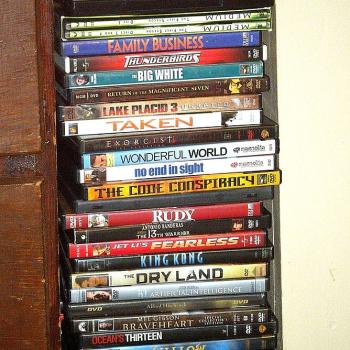A very small thought about this review of several “young evangelical memoirs.”
So first, there’s a lot of good stuff in that review, even if Jake Meador is not quite as sympathetic to the authors as I think he thinks he is. (Yes, I am reviewing a review, because the Internet is bad.) I really liked the discussion of performance vs “putting on Christ”–cf the mask of obedience. Liked the line, “The problem [scandal and its discrediting of religious authority] creates is that religious authority does not simply hang in the ether doing nothing; religious authority is what binds and unites religious communities.” So much of the diagnosis of the theological problems that create the distinctive aesthetic of much contemporary Christian writing rings true.
But my main thought is about one of my many pet obsessions, spiritual Communion aka, Go to church even if you can’t receive the Eucharist! Meador writes:
In his poem “Two Hangovers,” the Ohio poet James Wright describes a bluejay he once saw bouncing up and down on a tree branch, “I laugh, as I see him abandon himself to entire delight, for he knows as well as I do that the branch will not break.” If there is a single way of understanding these young evangelical memoirs it is that the faith of our childhood did not give us the ability to abandon ourselves to delight. It didn’t teach us to be, in Chesterton’s phrase, “lazy with the love of good” because it did not teach us that the branch would not break.
And this may be totally irrelevant to what Meador is getting at–I don’t pretend to understand either Protestantism or the 1990s, man–but I think one thing having to stay in my pew has done for me is that it is a powerful reminder that the branch doesn’t break. Not a pleasant reminder; not joyful. But a relief in many ways.
Nothing I do will break the branch. There is something objective, outside myself, and my faith lies in my relationship to that Person; His otherness outside me is as important as His Spirit within me. My own internal state can be any fool thing, but the Eucharist is still there, loving, longing; waiting for me, for when we can be together again. The “frailty,” the “Sisyphean spirituality” that Meador sees in the ’90s evangelical world, forces me to focus on my own anxious activity, my constant self-questioning, until faith becomes something I summon up within myself like willpower. (Totally absent, you know, like willpower.) Whereas when you are at Mass and not receiving even your gaze is directed outward at the Host, not (I hope) down at the clasped hands. That gaze is a gesture of submission, like kneeling.
Spiritual Communion is, among many other things, a way to say, I can’t do what You’re asking me to do right now, or I disagree with so much in the Church that presents You to me. But I trust You and I know that none of this depends on me.















